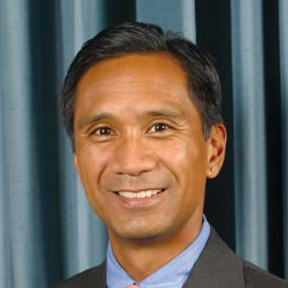Recently, Secretary of Defense Donald Rumsfeld stated, “We still believe they [Osama bin Laden and Mullah Mohammad Omar] are still in the country [Afghanistan]. We’re still working on that basis.” This statement came one day after an ABCNews.com report that a CIA analysis concluded that bin Laden escaped from the Tora Bora cave complex in early December and that he has since fled the region. Interestingly enough, the Christian Science Monitor had reported at the beginning of December that bin Laden had escaped to Pakistan some 10 days prior. U.S. officials responded to this report with skepticism. As a result, there was no front page or nightly news coverage of this possible development in the manhunt for the world’s most wanted man. More importantly, throughout the month of December, U.S. military efforts focused on continued bombing of the Tora Bora cave complex in eastern Afghanistan.
So where in the world is Osama bin Laden? According to the Pentagon, the best assessment is that he is still in Afghanistan, but a senior intelligence officer admitted “best assessments can be proven wrong.” A senior defense official said, “We don’t have any evidence that shows he’s anywhere but Afghanistan, but we don’t have anything compelling that shows he’s in Afghanistan.” In other words, nobody knows for sure and bin Laden could be anywhere.
All this highlights the difficulty of trying to track down and capture a single man. Very early on, Rumsfeld characterized the hunt for bin Laden as searching for a needle in a haystack. That was when the task at hand was “confined” to a country the size of Texas. The outlook became brighter when the success of the Northern Alliance and other anti-Taliban Afghans seemed to circumscribe bin Laden’s whereabouts to the Tora Bora cave complex. While the U.S. obviously continues to pin its hopes that bin Laden remains in Afghanistan, suddenly the world has become a very big place.
To provide some perspective on the ongoing search for bin Laden, consider the alleged Atlanta Olympics bomber Eric Rudolph, who is also accused of a deadly bombing at a Birmingham, AL abortion clinic and a gay night club. The subject of nationwide manhunt beginning in January 1998, he disappeared into North Carolina’s Nantahala mountains and three years later has yet to be found. How hard has it been to find Rudolph and what might implications does that have for finding bin Laden? One FBI agent commented that in the thick forest, “we could have walked within five feet” of Rudolph and not seen him. Authorities believed they had Rudolph contained within 517,000 acres inside the Nantahala National Forest. The Tora Bora region where bin Laden is believed to be hiding is less than 200 square miles, or only about one-fifth the size of Nantahala. In other words, the hunt for bin Laden has involved more resources expended inside a smaller area, but so far the results have been the same. Nothing.
While the United States can continue to hold out some hope that bin Laden may still be in Afghanistan (never discount “luck” as a factor), it’s time to face up to the real possibility that he has escaped. That means broadening the dragnet. The United States needs to bring pressure to bear on Pakistan President Pervez Musharraf to devote resources to an extensive manhunt for bin Laden inside Pakistan. Pervez had declared in November that he was “very sure” bin Laden was not in Pakistan, but that was then and this is now. An APB needs to be put out in countries such as Somalia, Sudan, and Yemen where terrorist groups like al Qaeda have been known to operate.
Most importantly, the United States needs to understand that this is no longer primarily a military operation. It has now become much more a detective and police operation. Like the popular children’s game “Where In The World Is Carmen Sandiego?” the task now is to search the world for clues to track down and catch bin Laden. Some of those places will include countries that are U.S. allies and friends. Unlike Afghanistan, the United States will not be able to act unilaterally and will instead have to take a more cooperative approach.
U.S. officials have tried to downplay the elusiveness of bin Laden and have avoiding using his capture as a yardstick by which the war on terrorism is measured. Pentagon spokeswoman Victoria Clarke said, “We’ve tried hard not to personalize it. This is a lot more than [bin Laden] and Omar.” But the harsh reality is that it is about bin Laden. President Bush set the bar for bin Laden very early on: dead or alive. Right now, the United States can confirm neither. As such, America has achieved an important tactical victory in Afghanistan, but the war is far from won.







